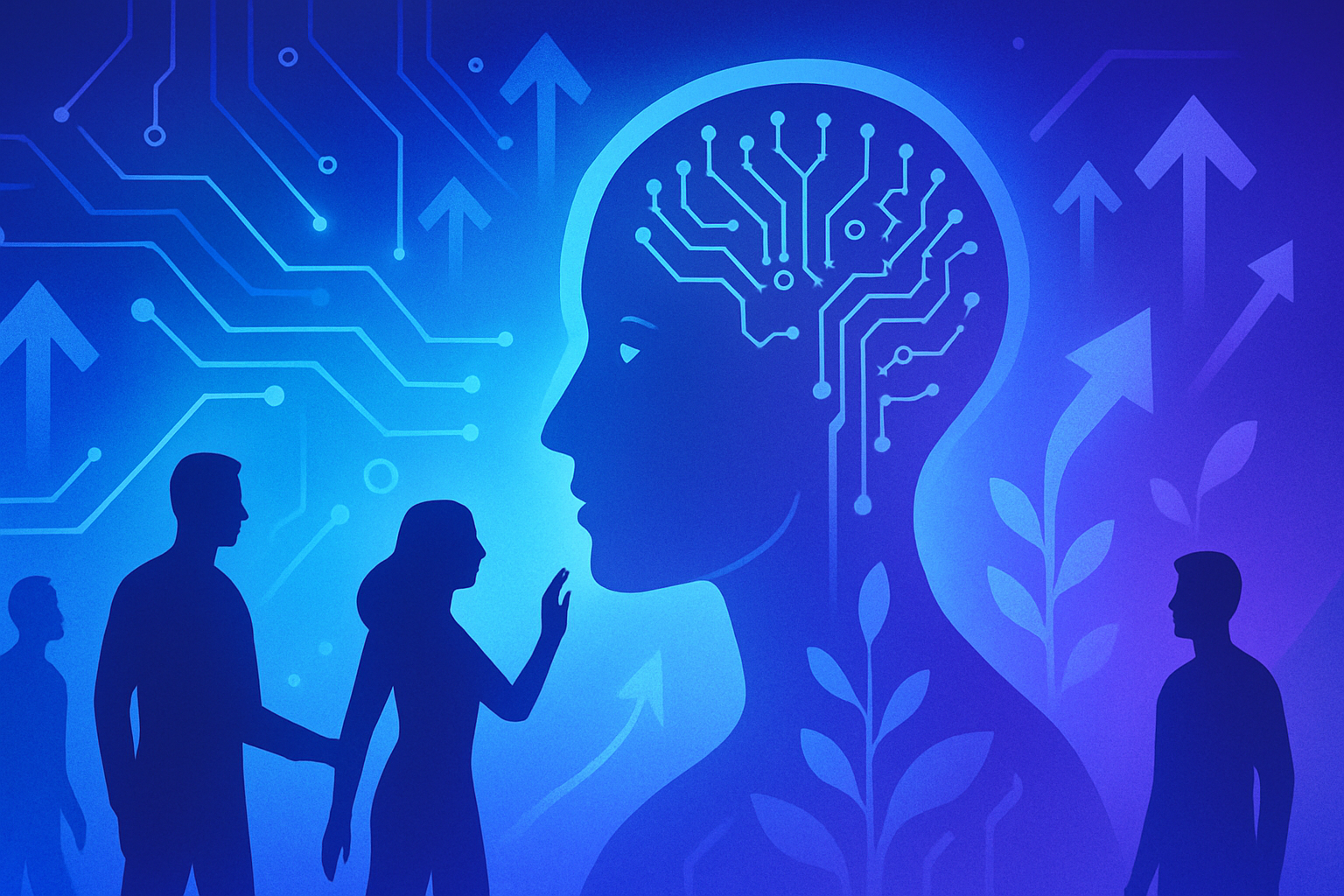The commitment of companies and individuals to promote a beneficial AI is proving to be a decisive challenge in our digital age. The growing dependence on these technologies raises ethical and practical questions that concern each of us. The consequences of inappropriate use risk harming our intellectual and creative development, thus threatening our ability to think clearly and innovate. Accountability regarding these tools must encourage a constructive dynamic, where AI truly serves to enhance our innate potential.
The adoption of AI: an imperative for human development
Companies and individuals often find themselves confronted with a dilemma with the advent of AI. The use of generative artificial intelligences must be thoughtful so as not to diminish human capabilities. Rather than fully delegating certain functions to these systems, the focus should be on usage that enhances critical thinking and creativity. Memorization and the development of solid arguments become essential in a world where AI is pervasive.
Cognitive “friction” as a factor of emancipation
Research highlights that cognitive friction is essential for sharpening intelligence. Interacting with divergent ideas stimulates thinking, while complacency towards AI lowers intellectual levels. Indeed, AI users tend to cede their minds by relying too heavily on these tools. Progress then relies on the ability to debate ideas and engage in deep reflections.
Erosion of essential skills
Excessive dependence on AI leads to an erosion of fundamental skills. Students, 86% of whom now use AI in their studies, are facing growing difficulties in memorizing and reasoning for themselves. It is alarming to note that a majority of them no longer seek to process information critically, leading to a diminishment of learning capabilities.
Solutions to accompany transformation
To counter these effects, establishing spaces without digital tools would encourage autonomous reflection. Educational methods, such as the Socratic method, promote active engagement from students. It is essential to teach them that without exercises in memorization and intellectual confrontation, their skills will inevitably decline.
The role of companies in this dynamic
Companies are called to play a major role. They must ensure that their AI systems promote skill development, but also establish standards that guarantee a code of ethics for use. In the face of growing criticism, some companies, like Meta, are making commitments towards AI safety and regulation. These initiatives respond to increasing concerns within society.
Towards international regulation
Calls for AI regulation, such as DeepSeek, highlight the need for a common framework. Discussions around the evolution of regulations remain at the heart of debates. The necessity for global governance and strict oversight is emphasized to prevent potential abuses related to AI use.
Future perspectives
In terms of innovation, promoting responsible AI use is essential. Companies must shape tools conducive to creativity and intellect. The collaboration between humans and machines can open new perspectives, provided it is guided by ethical values. This alliance could represent a significant advancement for humanity, rather than a simple substitution of capabilities.
As technologies evolve, awareness of AI issues is intensifying. Discussions regarding the social responsibility of companies concerning AI, particularly with references to Google’s commitments, reveal one important thing: the future of societies depends on a balance between innovation and the preservation of human capabilities.
Frequently asked questions
What is the commitment of companies towards responsible AI?
The commitment of companies to responsible AI involves adopting practices and policies that ensure artificial intelligence is used to enhance human capabilities, support creativity, and not serve as a substitute for human skills.
How can individuals contribute to promoting positive AI use?
Individuals can promote positive AI use by informing themselves about the effects of these technologies, participating in discussions about their ethical use, and supporting initiatives that encourage transparency and accountability in AI development.
What are the risks associated with excessive dependence on AI in companies?
Excessive dependence on AI can lead to erosion of critical skills, decreased creativity, and cognitive dependency, where employees rely too much on these tools, reducing their ability to think independently.
How can companies measure the impact of AI on their employees’ human capabilities?
Companies can measure the impact of AI by monitoring productivity, collecting feedback from employees, and evaluating the improvement or deterioration of critical skills through regular assessments.
What effective practices can be used to integrate AI into a work environment without diminishing human capabilities?
To integrate AI without harming human capabilities, companies should offer regular training, encourage critical thinking, limit automation to repetitive tasks, and promote a balance between the use of smart tools and human work.
How can companies educate their employees about responsible AI use?
Companies can educate their employees through training on AI tools, seminars on AI ethics, and awareness programs that highlight the dangers of non-critical use of technologies.
Why is “cognitive friction” important when using AI?
Cognitive friction is essential because it encourages individuals to think, debate, and confront their ideas, which enhances learning and creativity, while over-reliance on AI can reduce this intellectual stimulation.
What roles can governments play in promoting beneficial AI for humanity?
Governments can promote beneficial AI by establishing regulations, supporting research on AI ethics, and promoting initiatives that encourage companies to adopt responsible and sustainable practices.






